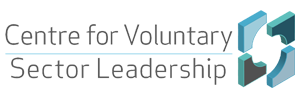You are here
- Home
- Blogs
- Anonymous's blog
- Digital Competence Toolkit for Impact Organisations
Digital Competence Toolkit for Impact Organisations

This blog was written by Tot Foster who is currently working as a Research Associate on the Project EU3 Digital. The Centre for Voluntary Sector Leadership is an academic partner in this European initiative which brings academics, practitioners and tech experts together for digital advancement in the third sector. You can find out more and access resources at eu3Digital.com
Digital tools and skills have the potential to help organisations run more efficiently and deliver new services. But do you have that nagging feeling that there is more you could be doing to get digital?
Does it feel like an uphill struggle? If so, you are not alone. Our research shows that not only is the voluntary sector generally lagging behind the commercial and public sectors in making the most of digital opportunities, but there are significant barriers that make it a mountain to climb.
Moving on with digital can bring huge advantages; money and time savings, better communications, efficient data collection and analysis – the list is endless, but it’s not easy. It’s not necessarily even about taking actions to fulfill a vision of a digital future; many of us don’t know what’s possible and have trouble identifying what a digitally savvy future could look like. And to make it more complicated the pandemic forced us all to adopt new ways of working and tools without time to reflect.
So where to go from here?
Over the last eighteen months CVSL has been a partner in a pan-European project – EU3 Digital. Our role has primarily been to research and formulate a Framework of Digital Competences for Third Sector Organisations and Social Enterprises. There are numerous digital frameworks and tools already out there that measure digital maturity, or offer a roadmap for digital development, but this framework is specific to the not-for-profit sector.
For small organisations that may be cash-strapped, work with marginalised beneficiaries, rely on volunteers, and where everyone is stretched for time, a fresh approach is needed that takes into account these specific circumstances.
We researched academic literature, explored what support already exists, and interviewed a range of people and organisations from across Europe. Drawing this data together we formulated a framework that includes 21 competences under five headings: Digital Tools, Operational Effectiveness, Organisational Culture and Leadership, Ethical Practices and Participation and Connection.
In contrast to other frameworks which often focus on technology, the holistic approach represented here considers amongst others the leadership skills digital change demands, how digital knowledge and skills may need to be distributed across an organisation, the advantages of being part of a knowledge sharing community, and the primacy of high ethical standards. This framework is not designed to be a blueprint for digitalisation, instead it can be used as a conversation starter, a stimulus for reflection and a basis with which second tier organisations can develop resources that target the specific needs of the sector. The basics of the framework have now been published at eu3digital.com and the full report is imminent.
One competence we have included in the framework is, where relevant, to move forward on digital inclusion for service users. As the digital world speeds ahead many individuals are left behind; excluded from some basics through online-only forms, app-based transport etc. The voluntary sector is already supporting those who are vulnerable; a compelling reason for organisations to move on with digital is to put themselves in an even stronger position to support those who experience increased marginalisation because of their own lack of digital resources and skills.
8th June 2022


